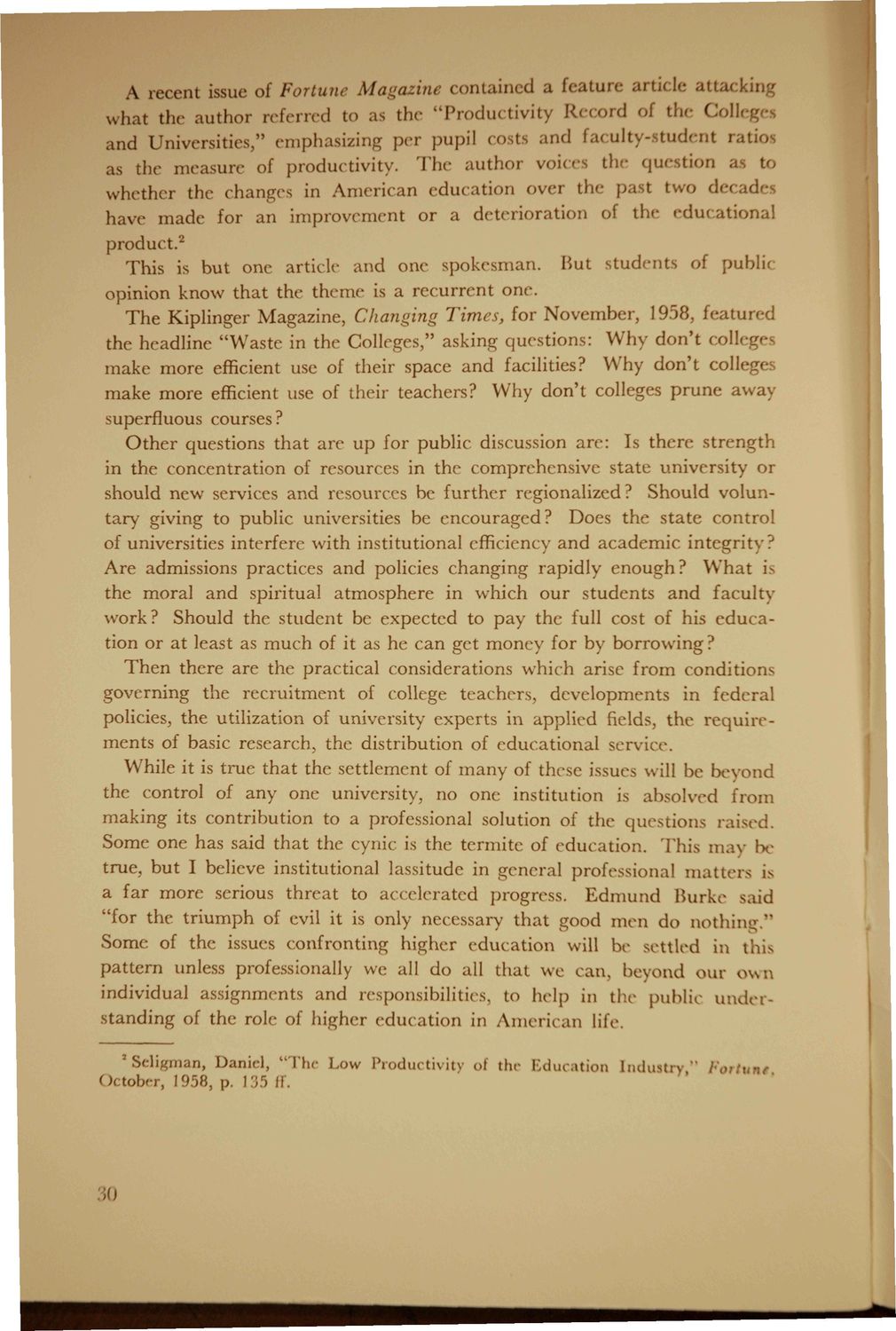| |
| |
Caption: Booklet - State of University (1958)
This is a reduced-resolution page image for fast online browsing.

EXTRACTED TEXT FROM PAGE:
A recent issue of Fortune Magazine contained a 1 iture article! att; kin what the author referred to as the "Productivity Re< id of the Colleges and Universities," emphasizing per pupil costs and faculty-Student ratios as the measure of productivity. T h e author voices the question as to whether the changes in American education over the past two de< have made for an improvement or a deterioration of the cduc ational product. This is but one article and one spokesman. But students of public opinion know that the theme is a recurrent one. T h e Kiplinger Magazine, Changing Times, for November, 1958. featured the headline "Waste in the Colleges," asking questions: Why don't college make more efficient use of their space and facilities? Why don't colle es make more efficient use of their teachers? Why don't colleges prune away superfluous courses? O t h e r questions that are up for public discussion are: Is there strength in the concentration of resources in the comprehensive state university or should new services and resources be further regionalized? Should voluntary giving to public universities be encouraged? Does the state control of universities interfere with institutional efficiency and academic integrity? Are admissions practices and policies changing rapidly enough? W h a t i the moral and spiritual atmosphere in which our students and faculty work? Should the student be expected to pay the full cost of his education or at least as much of it as he can get money for by borrowing? T h e n there are the practical considerations which arise from condition governing the recruitment of college teachers, developments in federal policies, the utilization of university experts in applied fields, the requirements of basic research, the distribution of educational service. While it is true that the settlement of many of these issues will be beyond the control of any one university, no one institution is absolved from making its contribution to a professional solution of the questions raised. Some one has said that the cynic is the termite of education. This may be true, but I believe institutional lassitude in general professional matters is a far more serious threat to accelerated progress. E d m u n d Burke said "for the triumph of evil it is only necessary that good men do nothing." Some of the issues confronting higher education will be settled in this pattern unless professionally we all do all that we can, beyond our own individual assignments and responsibilities, to help in the public underStanding of the role of higher education in American life. Sditfinan, Daniel, "The Low Productivity of the Education Industr October, 1958, p. 135 11. 2 2 / 0
| |